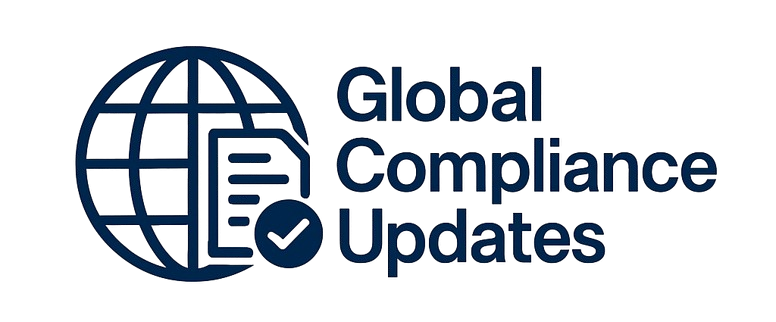High performing teams are the backbones of any company. As Patrick Lencioni, author of The Five Dysfunctions of a Team, states “Teamwork is the last untapped resource.” This webinar explores the foundations of creating a highly functional teams. These teams share a commitment to self-awareness, solid relationships and accountability which form the basis for deep trust and great results. We will also discuss the importance of mindset on a team. Like organizational culture, team mindset drives team relationships, decisions and problem solving.
Teams often struggle to resolve conflict effectively and as a result, conflict gets swept under the rug or becomes toxic over time. Participants will explore how team conflict can be generative and can add – rather then detract – from a team’s success.
WHY SHOULD YOU ATTEND?
Attend the web session to learn strategies, insights and techniques for developing a highly performing team.
AREA COVERED
- Five Dysfunctions of a Team framework
- How to build team trust
- How to identify and shift your team's mindset
- How to manage team conflict effectively
- How to create a results-oriented team
- How to identify what high performing looks like for your company
LEARNING OBJECTIVES
- To learn the Five Functions of a Team by Patrick Lencioni and how to apply them to your team
- To assess your team's functioning including areas of strength and improvement
- To explore the level of trust on your team and strategies for building better trust among team members
- To learn how mindset (beliefs, habits, interpretations) drives most of your team's decision making and how you can use mindset to increase your team's performance
- To understand how productive conflict resolution can increase your team's productivity
- To develop a plan of action for increasing your team's performance
WHO WILL BENEFIT?
- Supervisors
- Managers
- Team Leaders
- Management Team
- Directors/VPs/CEOs
- Business Leaders
- Any organization with 50+ Employees in a professional environment (financial, banking, mortgage, IT, sales driven organizations)
Attend the web session to learn strategies, insights and techniques for developing a highly performing team.
- Five Dysfunctions of a Team framework
- How to build team trust
- How to identify and shift your team's mindset
- How to manage team conflict effectively
- How to create a results-oriented team
- How to identify what high performing looks like for your company
- To learn the Five Functions of a Team by Patrick Lencioni and how to apply them to your team
- To assess your team's functioning including areas of strength and improvement
- To explore the level of trust on your team and strategies for building better trust among team members
- To learn how mindset (beliefs, habits, interpretations) drives most of your team's decision making and how you can use mindset to increase your team's performance
- To understand how productive conflict resolution can increase your team's productivity
- To develop a plan of action for increasing your team's performance
- Supervisors
- Managers
- Team Leaders
- Management Team
- Directors/VPs/CEOs
- Business Leaders
- Any organization with 50+ Employees in a professional environment (financial, banking, mortgage, IT, sales driven organizations)
Speaker Profile
 Claudette Rowley
Claudette Rowley
Claudette Rowley, Cultural Brilliance™ CEO, is a cultural design and change management consultant with a knack for building strategic plans and orchestrating organizational changes that boost business performance and increase employee engagement at the same time.For the past fifteen years, Claudette has consulted, trained and coached executive leaders and management teams at Fortune 1000 companies, small businesses and start-ups to create a pro-active and innovative workplace culture that delivers outstanding results throughout all areas of an organization. Claudette is the creator of the Cultural Brilliance™ Methodology, author of Embrace Your Brilliance and co-host of the globally syndicated radio …
Upcoming Webinars


Effective Communication: Ensuring Clarity, Accountability a…

2-Hour Virtual Seminar on Workplace Investigations 101: How…

Employers Should Prepare for Immigration Raids in 2026! Thi…

AI for Excel Professionals: Enhancing Productivity with Cha…

The Importance of the first 5 seconds when presenting

Negotiating Skills For Professional Results - Winning Strat…

Workplace Behavior in 2026: Tackling Conflicts and Incivili…

FDA Recommendations for Artificial Intelligence/Machine Lea…

Validation Statistics for Non-Statisticians

Bootcamp for New Managers and Supervisors: Develop These Es…


Interactive dashboards & analytics in Excel


Enhancing Project Management with Storytelling Techniques

4-Hour Workshop on Data Simplified: Sorting and Filtering, …

Creating Your 2026 Marketing Strategy

The Language of Leadership: Is Your Communication Style As …

ChatGPT for Innovative Business Advisory Services for Accou…


Utilizing A Proven Process When Conducting Sensitive, Inter…

How to Write Procedures to Avoid Human Errors

Human Factors Usability Studies Following ISO 62366 and FDA…

Why EBITDA Doesn't Spell Cash Flow and What Does?

Mastering DAX Patterns in the Era of AI & Copilot

Establishing Appropriate Quality Metrics and Key Performanc…


IRS Form 1099 Reporting: Compliance Requirements

FDA QMSR Explained: How the QMSR Replaces the QSR

How to Manage the Legal Landmine of the FMLA, ADA and Worke…

Understanding EBITDA – Definition, Formula & Calculation

Tattoos, hijabs, piercings, and pink hair: The challenges …

FDA Compliance And Laboratory Computer System Validation

Medical Device Hazard analysis following ISO 14971




Excel Spreadsheets; Develop and Validate for 21 CFR Part 11…

Excel + AI: The Smart User's Guide to Faster, Easier Work w…
